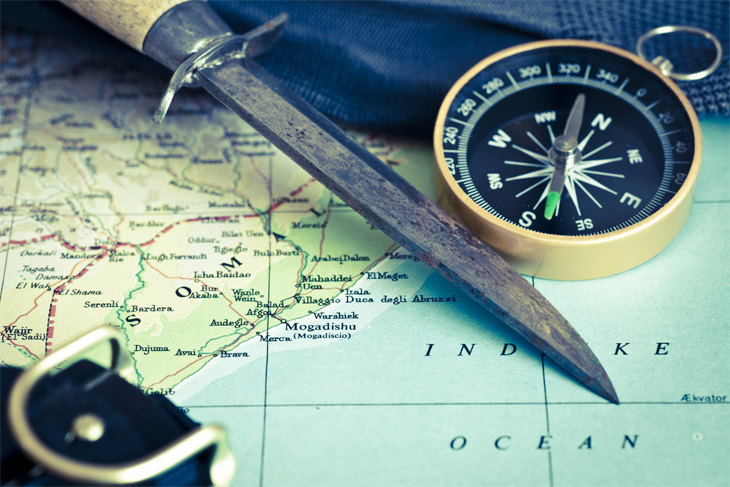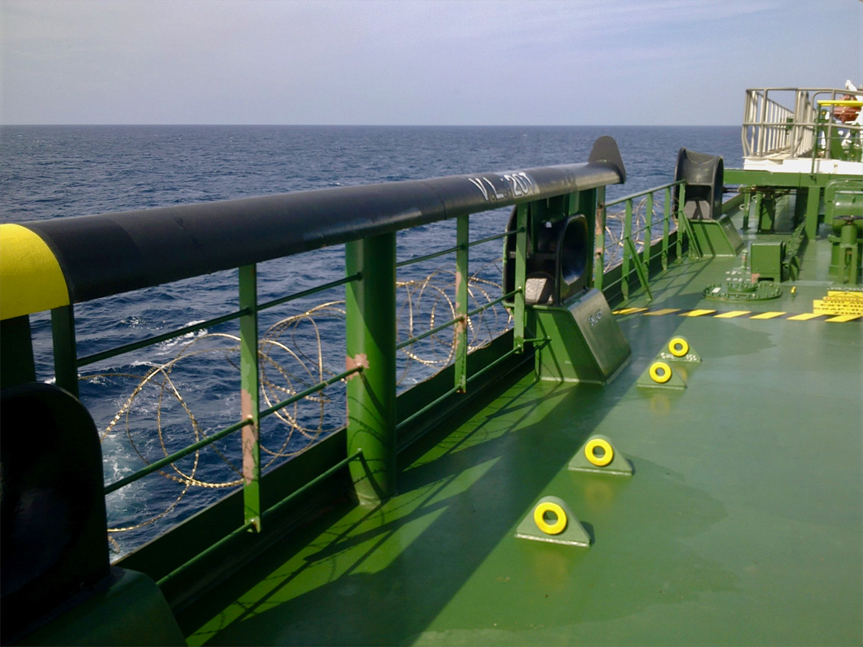
Nikita Bohra
Posted On : Aug 31 2020
Somalia Pirates
Despite having a massive Western and Chinese military presence, Somali pirates continue to throw challenges to international liners crossing the high seas near their territories. Attacks against ships have brought piracy to the forefront of international attention especially UN.

The first pirates were simply angry fishermen who boarded these foreign vessels and demanded a "fee." But as the illegal fishing persisted, some early pirates banded together and called themselves "coast guards." They claimed to be looking after Somalia's territorial integrity until the government could pull itself. Somalis over the years have lived under the most trying circumstances imaginable, facing acute poverty, lawlessness and anarchy. Of course, a lucky few had defected from their homeland and escaped the rigours of the civil war.
Somalia has not had an effective central government for almost two decades now. The weak government is battling insurgency to secure the capital and is preoccupied with internal wars and foreign lands waging a proxy war. The pirates in Somalia handle the most influential institutions in the country. They reinvest the ransom money procured from hijacking and piracy to plan out their next move. They effectively outmuscle the regional government and offer a glimmer of hope to the unemployed youth of Somalia by paying them handsomely for aiding them in piracy.
During the two decades of conflict that followed the fall of the SIAD regime in 1991, hundreds of thousands of Somalis fled their homes. Today Somalia is the world’s fourth highest source country for refugees, after Ukraine, Syria and Afghanistan.
According to the IMB, pirates are using oceangoing fishing vessels to reach as far as the southern Red Sea, where they hijacked a chemical tanker in July 2010 – the first such hijacking recorded in the area. Pirates are heavily armed with automatic weapons and rocket-propelled grenades, the IMB says. Somali pirates were responsible for 44% of the 289 piracy incidents on the world's seas in the first nine months of 2010, according to the International Chamber of Commerce's International Maritime Bureau.

In November, the ship was targeted for second time in seven months, but private guards on board repelled the attack with gunfire. In November 2008, Somali pirates hijacked the Saudi oil tanker Sirius Star, carrying 2m barrels of crude oil worth £68m, in the Indian Ocean. Pirates released the super tanker and its 25-strong crew, which included two Britons, after a ransom of £2m was reportedly paid on behalf of the ship's owners in January 2009.
The pirates had initially demanded more than £17m. Somali pirates seized a yacht being sailed by French couple, Chloé and Florent Lemaçon, in April last year. When negotiations broke down, the French stormed the boat and the pirates opened fire. Florent Lemaçon was killed during the operation, as were two of the five pirates.
From 2014 onwards, a larger presence of Indian and Chinese navy ships led to a marked reduction of piracy attacks, as they embarked on several joint efforts in rescuing hijacked ships. This includes the famous rescue of the hijacked bulk carrier OS 35 between the coasts of Somalia and Yemen in 2017. In January 2023, the Indian Ocean High Risk Area (HRA) was lifted due to a significant absence of Somali pirate attacks over the past few years after no commercial vessels have been attacked off Somalian waters by pirates since 2018.
Despite this positive development, the IMB PRC cautions that Somali pirates still possess the ability and resources to conduct attacks in the Gulf of Aden region.
No Comments Added




















